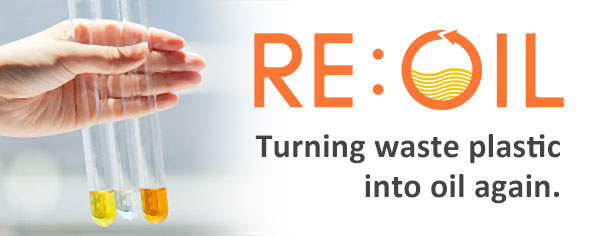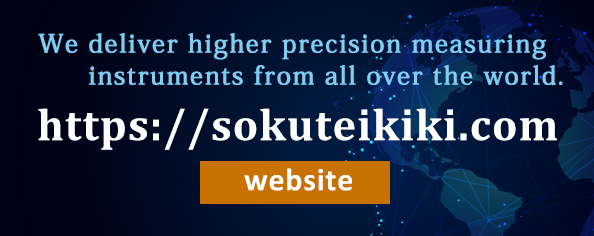Research Misconduct Prevention Regulations
Article 1 (Purpose)
The purpose of these regulations is to stipulate the necessary matters to ensure that academic research at the Environment and Energy Corporation (hereinafter referred to as the "Corporation") complies with laws and regulations, is conducted in a manner and with content that is socially appropriate, and maintains fairness and transparency.
Article 2 (Definitions)
In these regulations, the meanings of the terms set out in the following items shall be as set out in the respective items.
- Researcher: Refers to all individuals involved in the management and administration of public research funds, such as researchers and administrative staff of corporations.
- Misconduct refers to research activities conducted using the allocation or measures of research funds (hereinafter referred to as "public research funds") set out in the Regulations for Handling Public Research Funds of the Environmental Energy Corporation, where a researcher intentionally or grossly neglects the basic duty of care that a researcher should be aware of, committing any of the following misconduct in the data or research results presented in a submitted paper etc.
- (a)Fabrication refers to creating data, research results, etc. that do not exist.
- (b)Falsification refers to the act of changing research materials, equipment, or processes in order to render data or results obtained through research activities inauthentic.
- (c)Plagiarism refers to the misappropriation of another researcher's ideas, analytical methods, data, research results, papers, or terminology without the consent or appropriate attribution of that researcher.
- "Inappropriate conduct" refers to any of the following acts in relation to the planning, planning, implementation, and compilation of results of research (including applications and reports to supporters when external funds, etc. are used) and the use of public research funds.
- (a)Duplicate submission refers to the act of creating multiple research papers that are deemed to have the same content and publishing them in different journals, etc. However, this does not include cases where the paper meets the regulations of the academic journal to which it is submitted and is not considered to be duplicate submission.
- (b)Inappropriate authorship refers to the act of including individuals who are not qualified to be authors in the author list of a research paper, or excluding individuals who are qualified to be authors.
- (c)Other: Other than what is covered by subparagraphs (a) to (b) of this section, this refers to any conduct that violates the research code of conduct separately established by the corporation.
- Research data refers to all basic information that serves as the basis for research.
- Research ethics education refers to education provided to inform those involved in research activities that publish papers and research results of the content and ethical standards that they should be aware of.
Article 3 (Responsibilities of Researchers, etc.)
Researchers must comply with internationally recognized treaties, regulations, and agreements, as well as domestic laws and regulations, and any code of conduct for research separately established by the Corporation.
Article 4 (Collection and management of research data)
- Researchers must collect research data using lawful and fair methods and means.
- When researchers publish research results, they must properly preserve the research data of the published research results for five years in principle from the time of publication in order to fulfill their accountability and ensure verifiability. However, if a retention period longer than five years is prescribed by relevant laws and regulations or the code of conduct of the relevant research field, these must be complied with.
- Researchers must prepare individual records or other management systems for the research data of research results that they have published externally, and if they publish additional research results, they must add and manage the information used in those results.
- Researchers must strictly observe the confidentiality obligations associated with research activities and endeavor to protect any personal information that they may come into contact with in the course of their research activities.
Article 5 (Informed Consent)
- When researchers conduct research using information and data relating to an individual's privacy, such as information about their beliefs, mental and physical condition, or financial situation, they must explain the purpose, method of use, etc. to the research subjects who provide the information and data, and their guardians or legally authorized representatives (hereinafter referred to as "research subjects"), and obtain their prior written consent.
- Where consent has been obtained in accordance with the provisions of the preceding paragraph, if a research subject, etc. makes a request to withdraw consent, etc., this request must be accommodated.
- The provisions of the preceding two paragraphs shall also apply mutatis mutandis to cases where information and data, etc. are received from organizations, groups, etc.
- When researchers intend to publish the results they have received as research findings, they must obtain the prior consent of the research subjects, etc.
Article 6 (Evaluation of the performance of other researchers)
- When a researcher is commissioned to serve as a referee, paper reviewer, or examiner, etc. and is involved in evaluating the research achievements of other researchers, he/she must do so fairly in accordance with the evaluation criteria and examination guidelines.
- Researchers must not improperly use or leak any information that they learn in connection with the evaluation of other researchers' performance.
Article 7 (Appropriate Use of Public Research Funds)
- Researchers must always be aware that their research is funded by public research funds, strive to use public research funds appropriately, and live up to the responsibilities entrusted to them.
- When using public research funds, researchers must comply with the law, the regulations for that research fund, and the various regulations for the use of public research funds at the corporation.
- Researchers must use public research funds under the management and operation of the Secretariat and must cooperate with the Secretariat.
- Researchers must clearly describe the facts of their research in their performance reports.
- Matters concerning the prevention of misconduct in the administration of public research funds will be stipulated separately.
Article 8 (Corporate responsibility system for preventing fraudulent activities, etc.)
- The corporation shall appoint a Chief Administrator to be the person ultimately responsible for dealing with misconduct and inappropriate conduct in research activities (hereinafter referred to as "misconduct, etc."). The Chief Administrator shall be the representative director.
- The Chief Administrator shall be assisted by a General Administrator, who shall be a director in charge of education and research. The General Administrator shall formulate and implement specific measures to prevent misconduct in research activities and report the situation to the Chief Administrator.
- A research ethics education officer will be appointed to provide and guide researchers in ethics education in research activities. The research ethics education officer will be the Compliance Promotion Officer. Under the direction of the General Manager, the research ethics education officer will provide research ethics education to the researchers under his/her supervision in order to prevent misconduct in research activities and will keep track of the status of attendance.
Article 9 (Implementation of Research Ethics Education)
- The Head Research Administrator shall formulate an implementation plan for research ethics education in order to prevent any misconduct in research activities.
- Based on the implementation plan in paragraph 1, researchers shall actively participate in research ethics education and endeavor to deepen their understanding of the standards of conduct in research activities.
- Researchers must submit a written pledge to the Chief Administrator, which must include the following:
- (1)Not to commit misconduct in research activities.
- (2)Comply with regulations regarding the prevention of misuse of public research funds.
- (3)If any misconduct is committed in violation of regulations, etc., the corporation or the public research funding agency will take disciplinary action and bear legal responsibility.
Article 10 (Reporting and whistleblowing of misconduct, etc.)
- A hotline will be set up to respond to reports and allegations (hereinafter referred to as "allegations, etc.") regarding misconduct, etc.
- The General Affairs Department shall be the point of contact for the matters referred to in the preceding paragraph.
- When an allegation is made, the person in charge at the desk shall promptly report it to the Chief Administrator.
- If suspicions of misconduct are raised by academic communities or other research communities or through the media, or if the Chief Administrator confirms that information about suspected misconduct has been posted on the Internet, the case will be treated as if a complaint has been made to the corporation.
Article 11 (Investigation of Misconduct, etc.)
- If the Chief Administrator determines that an allegation made pursuant to Article 3 and 4 clearly indicates the researcher/group, the nature of the misconduct, the details of the case, and reasonable grounds for proving that the allegation is misconduct, he/she shall decide within 30 days of receiving the allegation whether or not to conduct an investigation, and if he/she decides to conduct an investigation, he/she shall report the same to the public research funding allocation organization. If he/she decides to investigate the allegation, and the case is deemed to fall under specific misconduct as defined in the "Guidelines for Responding to Misconduct in Research Activities (Adopted by the Minister of Education, Culture, Sports, Science and Technology on August 26, 2014)" and other guidelines established by relevant national or other organizations (hereinafter referred to as "National or Other Guidelines"), he/she shall report the same to the Ministry of Education, Culture, Sports, Science and Technology and other national or other organizations.
- When the Chief Management Officer decides not to conduct an investigation, he/she must notify the person who made the allegation (hereinafter referred to as the "accuser") of that decision, stating the reasons. In this case, the Chief Management Officer shall preserve materials related to the investigation and disclose them upon request from the public research funding allocation organization and the accuser.
Article 12 (Publication of Investigation Results)
- If the Chief Management Officer determines through an investigation pursuant to the provisions of Article 11 that misconduct has occurred, he/she shall promptly make public the results of the investigation.
- The Chief Management Officer is not required to make public the results of the investigation if he or she determines through the investigation pursuant to Article 11 that no misconduct has occurred. However, if the matter investigated has been publicly known or if there is an unintentional error in the paper or other work, the Chief Management Officer shall make public the results of the investigation.
Article 13 (Disposition)
- Researchers who are found to have engaged in misconduct will be punished in accordance with the work regulations applicable to them.
- When taking the disciplinary action set forth in the preceding paragraph, disciplinary action shall also be taken against the person responsible for managing the person subject to said disciplinary action.
Supplementary Provisions
This regulation shall come into effect on April 1, 2016.



